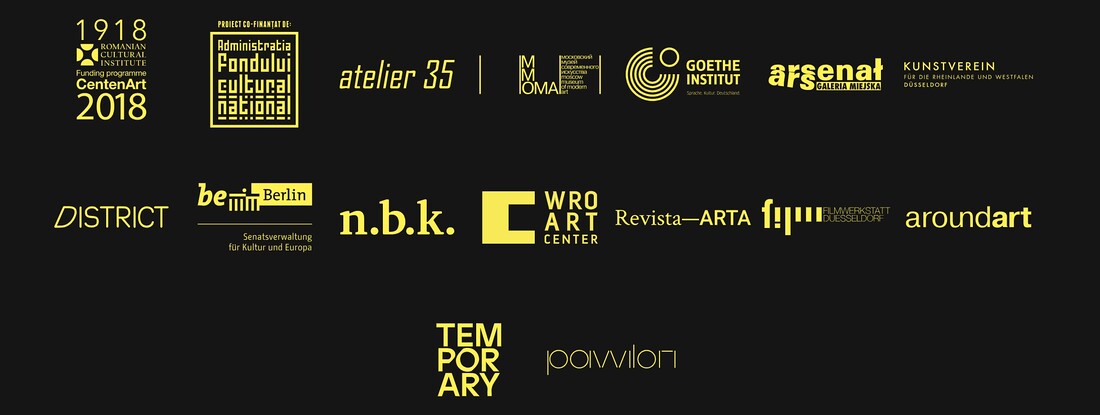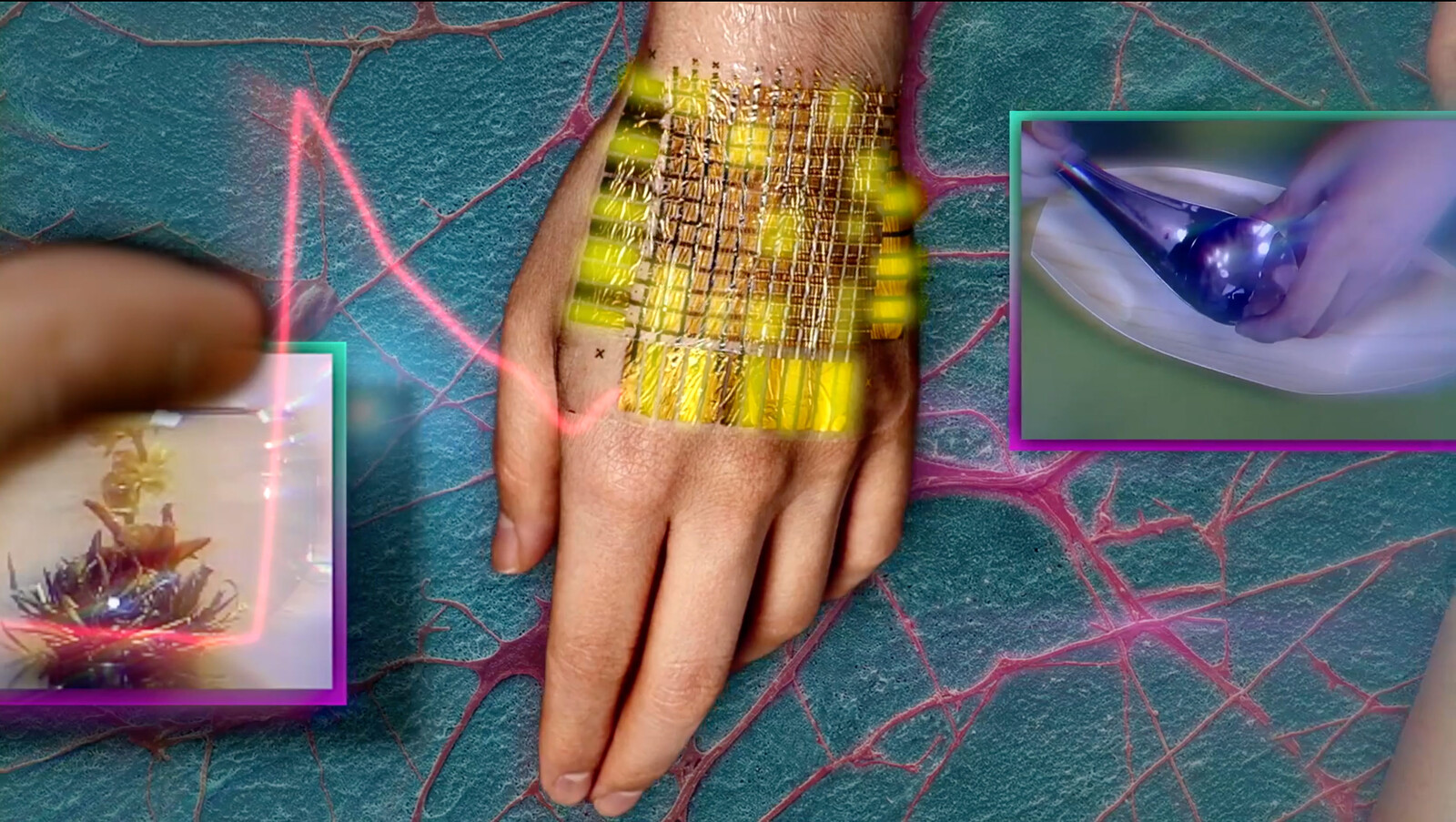A Multi-Curatorial Online Platform for Video Art from the former “East” and “West”
April 20, 2018–December 31, 2020
Pawilon, ul. Ewangelicka 1, Poznań, Poland
Haus 22 – Stasizentrale. Campus für Demokratie, Berlin, Germany
The most revealing instances of this complex intersection of postcommunist, postimperial and postcolonial discourses and imaginaries are to be found not in scholarly publications or official state policies, but rather in the arts, cinema, theatre and fiction.
–Madina Tlostanova, 2012
Questions about the significance of the post-socialist transformation for today’s global condition have been met with unsatisfactory answers. Launched by District Berlin in the spring of 2018, D’EST: A Multi-Curatorial Online Platform for Video art from the former “East” and “West” maps artistic forms of post-socialist historiography from collective, horizontal, gender-critical, and post-conceptual perspectives.
The title D’EST (“From the East”) is borrowed from the eponymous 1993 work of recently deceased filmmaker Chantal Akerman (1950–2015). In From the East’s sensitive, cinematic travelogue of transformation, the artist captures emblematic images of women waiting in a moment of hiatus just after the end of the Cold War.
Throughout the year 2018, the online platform introduces mostly female producers and artist collectives and publishes six screening chapters which will be accessible online until the end of 2020. Along several thematic focal points, these curated chapters reflect post-socialist transformation in relation to time, language, and semantics, corpo-fictionality and urban cosmetic rejuvenation practices, indexical reading exercises, familial bonds and Eastern futurological experiments of thought. Via deconstructing certain clichées, myths and stereotypes surrounding “the East” and “the West,” the prolog (O’ Mystical East and West, curator: Xandra Popescu) sets the stage for chapter #1 The Suspension and Excess of Time (curators: Kathrin Becker, Jana Seehusen) which reflects anachronical phenomena such as the “feeling of being in transition,” and for chapter #2 Performing Words, Uttering Performance (curators: Creative Association of Curators TOK (Anna Bitkina & Maria Veits), Inga Lāce), which performatively investigates the different functions of language before and after the 1990s. Whereas chapter #3 uncovers subcutaneous layers of post-socialist cityscapes (Cosmos Cosmetics: Unresting Memoryscapes and Corpofictions, curators: Miona Bogović, Suza Husse, Suzana Milevska), in chapter #4 the body takes agency as an indexical reading tool for the visual “pollution of history” since 1989 (The Body as an Indexical Reader, curators: Eva Birkenstock, Ulrike Gerhardt, Naomi Hennig). Shedding light on the lives of children of generations of socialism-builders and welfare state beneficiaries, the upcoming chapter #5 We Are Family (curators: Nataša Ilić, Jelena Vesić) will concentrate on the notion of family as an extended signifier before the closing chapter #6 ReTopia (Katja Kobolt, Bettina Knaup) will search for radically different futures.
Participating artists are: Marwa Arsanios, Željka Blakšić aka Gita Blak, Pauline Boudry & Renate Lorenz, Irina Botea Bucan, Marija Bozinovska Jones, Nicu Ilfoveanu, Anetta Mona Chişa & Lucia Tkáčová, Ioana Cojocariu, Cooperative Shvemy, CORO Collective (Eglė Budvytytė, Goda Budvytytė, Ieva Misevičiūtė), Alexandra Croitoru, Larisa Crunțeanu, Maja Čule, Anna Daučíková, Vukica Đilas, doplgenger, Ira Eduardovna, Factory of Found Clothes, Harun Farocki, Gery Georgieva, Melanie Gilligan, Gluklya (Natalya Pershina-Yakimanskaya), Lynn Hershman Leeson, Kerstin Honeit, Ana Hušman, Sanja Iveković, Polina Kanis, Barbora Kleinhamplová, Sasha Litvintseva, Maha Maamoun, Goshka Macuga, Lene Markusen, Ivana Mladenović, Marge Monko, Henrike Naumann, Katrīna Neiburga, Ilona Németh, Katrin Nenasheva, Phuong Linh Nguyen, Rachel O’Reilly, Sasha Pirogova, Renata Poljak, Marta Popivoda & Ana Vujanović, Eglė Rakauskaitė, Tabita Rezaire, Anca Munteanu Rimnic, Józef Robakowski, Ulrike Rosenbach, Elske Rosenfeld, belit sağ, Selma Selman, Shelly Silver, The Bureau of Melodramatic Research, Clarissa Thieme, Milica Tomić, and Katrin Winkler.
On November 24, 2018, Zofia nierodzińska and Arsenal Municipal Gallery invite D’EST (2018-2020) to Pawilon, Poznań, to launch screening chapter #5 We Are Family curated by Nataša Ilić and Jelena Vesić. Entwining autobiographical, historical, and fictional narratives, We Are Family speaks about generational, personal, and political frictions, about rifts and entanglements unfolding in the dystopian context post-1989.
On December 15, 2018, wild recuperations: material from below: Artistic Research at the Archive of the GDR Opposition hosts D’EST (2018-2020) for the launch of screening chapter #6 ReTopia curated by Bettina Knaup and Katja Kobolt at Haus 22, Stasizentrale, Campus for Democracy, Berlin. Video art screening about the political shifts, forms of memory and global dimensions of post-/socialist transformations.
Please visit and register with our website under www.d-est.com.
D’EST: A Multi-Curatorial Online Platform for Video Art from the former “East” and “West” is a project initiated by Ulrike Gerhardt with DISTRICT Berlin. D’EST is hosted in cooperation with the Moscow Museum of Modern Art (MMOMA), the Goethe Institute Moscow, the Kunstverein für die Rheinlande und Westfalen, Düsseldorf, Filmwerkstatt Düsseldorf, the Galeria Miejska Arsenał, Poznań, Pawilon, Poznań, and the Neuer Berliner Kunstverein Video-Forum. This project is made possible through the generous support of the Senate Chancellery Berlin – Department of Culture.



